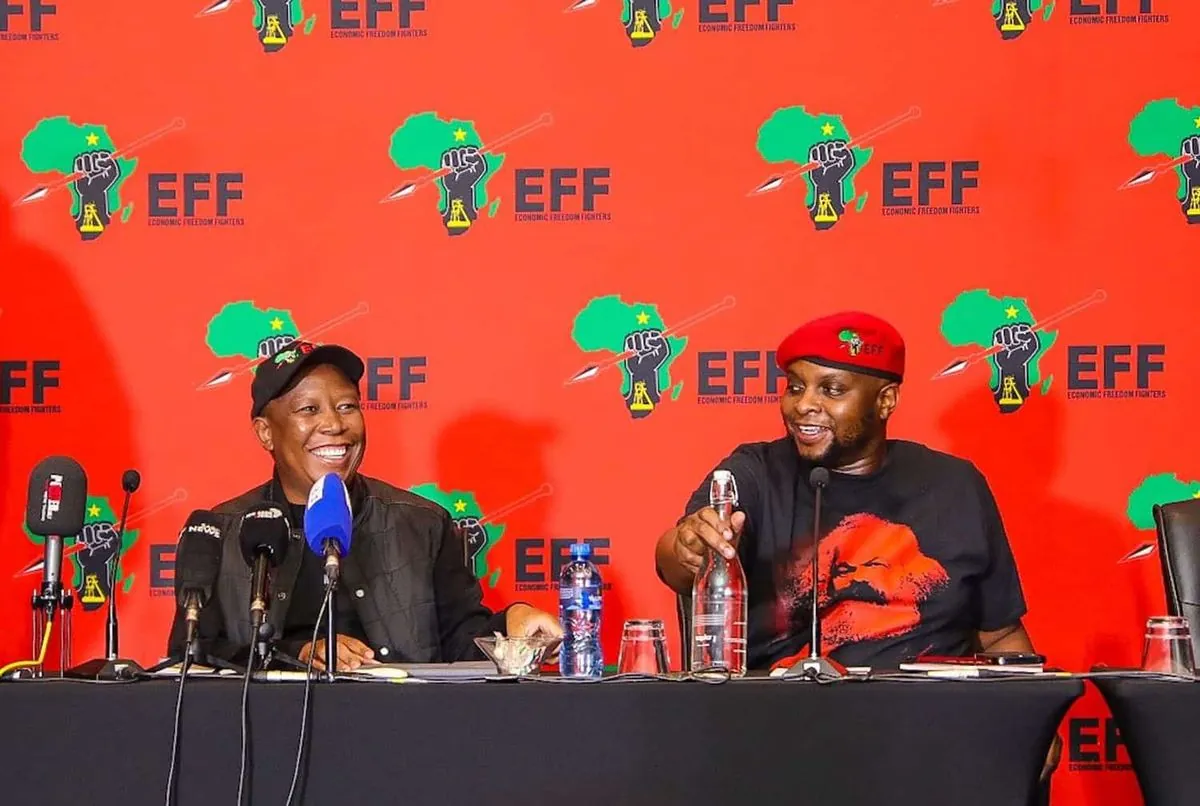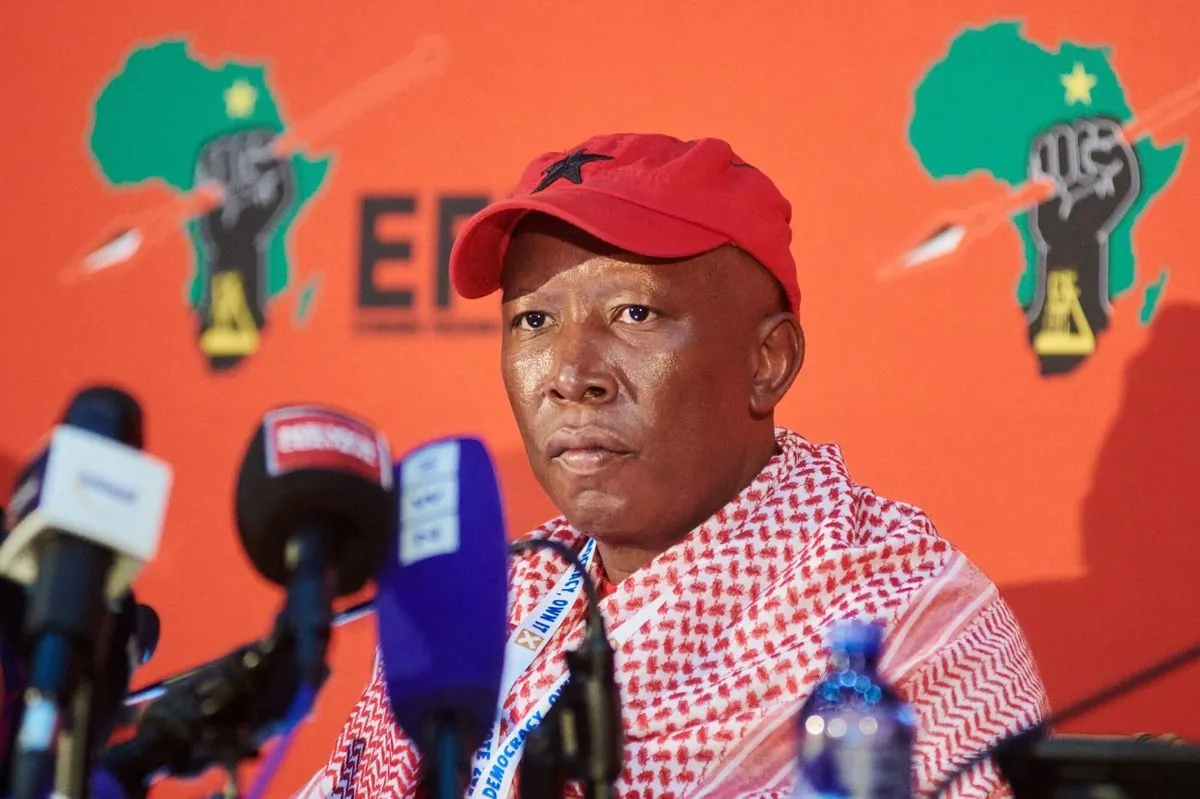South African Opposition Shaken as EFF Deputy Joins Zuma's Party
Floyd Shivambu, deputy leader of South Africa's EFF, resigns to join Jacob Zuma's MK party. This move highlights MK's growing influence and poses a challenge for the EFF's future in the country's political landscape.

In a significant political development, Floyd Shivambu, the deputy leader of South Africa's Economic Freedom Fighters (EFF), has announced his resignation to join uMkhonto we Sizwe (MK), the party led by former president Jacob Zuma. This move, occurring on August 15, 2024, marks a notable shift in the country's opposition landscape.
The EFF, founded in 2013 by Julius Malema, has faced challenges in recent times. In the May 2024 national election, the party's vote share declined to less than 10%. Conversely, the newly formed MK party, originally the armed wing of the African National Congress (ANC) during the apartheid era, emerged as the third-largest party in parliament.
Malema addressed the media, stating, "This is a testing moment, ... the EFF will have to pass this test or it will have to die." His words underscore the gravity of Shivambu's departure for the Marxist-oriented EFF.

Both the EFF and MK are part of a leftist opposition alliance formed after the election. This coalition aims to counter the government led by the ANC, which has ruled South Africa since 1994, and the business-friendly Democratic Alliance. However, Shivambu's switch indicates MK's rising appeal, largely attributed to Zuma's popularity in his home province of KwaZulu-Natal, the second most populous region in the country.
The political landscape in South Africa has been evolving rapidly. Zuma, who served as President from 2009 to 2018, was expelled from the ANC in 2024 after taking leadership of MK. The party's performance in the recent election played a crucial role in reducing the ANC's vote share below 50% for the first time since the end of apartheid.
The EFF and MK share similar policy positions, including advocating for the nationalization of banks and mines, and the expropriation of land for the benefit of Black farmers. Both parties critique what they term "white monopoly capital," arguing that it continues to control South Africa's wealth three decades after the end of apartheid.
These political developments occur against the backdrop of significant economic challenges. South Africa, despite having the second-largest economy in Africa by nominal GDP, faces one of the highest levels of income inequality and unemployment rates globally. The country's mining sector, a key economic driver, has been a focal point in debates about economic reform and wealth distribution.
As South Africa navigates these political shifts, the multi-party system, enshrined in the progressive Constitution adopted in 1996, continues to evolve. The country's diverse population, reflected in its 11 official languages, adds complexity to the political landscape as parties vie for support across various demographic groups.
"This is a testing moment, ... the EFF will have to pass this test or it will have to die."
The coming months will be crucial in determining how these political realignments impact South Africa's governance and economic policies, as the nation grapples with longstanding issues of inequality and economic transformation.


































